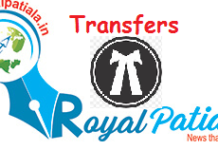April, 2 is World Autism day; early recognition of it may reduce symptoms – Harshpreet
Harshpreet Kaur
Almost everyone has heard of autism. We’ve come a long way in raising awareness about it. But, the facts about autism and how it affects people, along with the history of the condition, is lesser known.
I talk about autism a lot, so I’m going to go over some important information about autism here for those who are wondering what is autism, really?
What is autism?
Autism Spectrum Disorder (ASD), is a “neurodevelopment disorder that impacts brain development causing most individuals to experience communication problems, difficulty with social interactions, sensory processing differences, and a tendency to repeat specific patterns of behavior. There is also a markedly narrow repertoire of activities and interests.” In other words, they tend to have very specific special interests which may occupy a lot of their time.
The term “neurodevelopment” means that it is related to the way the brain grows and develops. This means that although there are often challenging behaviors associated with autism, it is not a behavioral disorder.
In other words, children with autism don’t choose to behave in a challenging way – they behave in a challenging way because various lagging skills make them require additional supports to respond adaptively in various environments.
The term “spectrum” describes the wide range of challenges and abilities people with autism face. Since the effects are so broad, no two individuals have the same challenges.
The effects of ASD are lifelong impacting on all areas of a person’s life. Although autistic individuals can and do often live very fulfilling lives. Additionally, no two individuals with autism are alike and may have significant differences in skills across multiple domains.
Signs & Symptoms of Autism (Please click this autism (1) )
The following are some common signs of ASD in early childhood:
- Doesn’t respond to his or her name or to the sound of a familiar voice
- Doesn’t follow objects visually, or follow your gesture when you point
- Does not use communicative gestures, for example pointing or waving.
- Lack of pretend play, or when they do play pretend they reenact things they saw on TV or from other kids.
- Cannot follow directions that have more than one or two steps
- Doesn’t make noises to get your attention
- Speaks with an abnormal tone of voice, odd rhythm, or pitch. For example, everything they say sounds like they’re asking a question.
- Doesn’t initiate or respond to cuddling or reach out to be picked up.
- Doesn’t imitate your movements or facial expressions.
- Reacts unusually to sounds, smells, textures, or sights.
- Seems as though they don’t notice or care if you hurt yourself or experience discomfort
- Doesn’t play with other children. May play beside them but with little interaction.
Since the signs of autism can present differently in different children, they aren’t always apparent.
Every individual with ASD as unique strengths, interests, talents, and areas that challenge them.
Understanding these strengths, interests, and talents on a person to person basis can help individualize interventions and strategies used to teach new skills and improve areas where challenges exist.
April, 2 is celebrated as an Autism day; early recognition may reduce symptoms – Harshpreet. For Further details contact the writer.
The writer, Harshpreet Kaur is a Counseling Psychologist and Registered Behavior Technician,Coordinator Psychowaves.
April,2,2020














